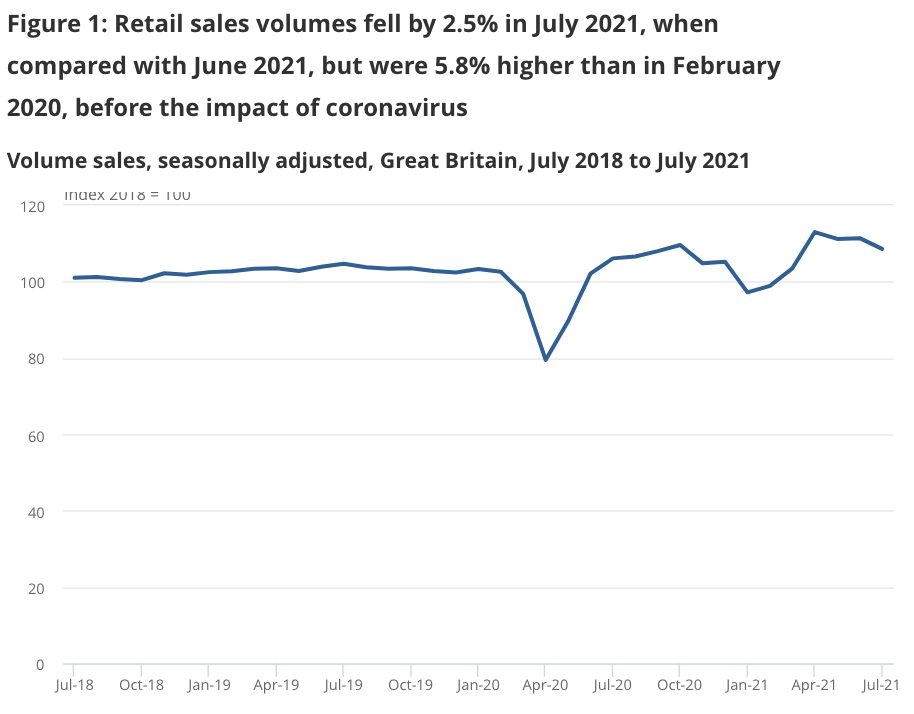End of Euro 2020 dampens retail sales in July

UK retail sales fell sharply over the last month driven by the end of the Euro 2020 football tournament in July stemming Brits’ spending on food and drink, according to official figures released today.
Data from the Office for National Statistics shows retail sales volumes dropped 2.5 per cent between June and July of this year.
Lower demand for match-day essentials ahead of England matches after Euro 2020 ended on 11 July weighed on total retail sales for the month as a whole, the ONS said. Food store sales dropped 1.5 per cent over the last month.
Weaker spending on food in supermarkets was also driven by consumers heading to pubs and dining out more frequently after the lifting of almost all Covid restrictions on so-called “Freedom Day” on 19 July.
Jonathan Athow, deputy national statistician for economic statistics at the ONS, said: “Food store sales volumes fell by 1.5% in July 2021, following an increase in the previous month when sales were positively boosted by the start of the Euro 2020 football championship.”

“Food sales fell back as further lifting of hospitality restrictions meant consumers had more opportunities to spend outside retail.”
A marked decline in fuel spending triggered by wet weather throughout most of July put downward pressure on overall sales volumes. Fuel sales dipped 2.9 per cent over the last month, the highest monthly fall for six months.
The value of retail sales also dropped in July, down 2.3 per cent.
The figures come as greater uncertainty over the potential impact a rise Covid cases could have on the UK economy and end of the furlough scheme is knocking consumer confidence.
Figures from GfK show consumer confidence edged down one point in August to -8.
Thomas Pugh, UK economist at RSM, said: “August is normally a slow month due to holidays, but this year retailers will be hoping that the thriving staycation market and changes to self-isolation rules for the double jabbed will drive an unseasonal peak in sales to aid the post-pandemic recovery.”
Despite the weak reading, retail sales are still 5.8 per cent above their pre-pandemic levels, highlighting that demand in the UK economy is still relatively strong.
Martin Beck, chief economic adviser to the EY ITEM Club, said: “June’s Euro 2020-related rise in sales in food stores unwound.”
“There is likely to have been some impact from the fact that the number of people told to self-isolate by the COVID-19 app in July was nearly three times the June total, constraining retail footfall.”